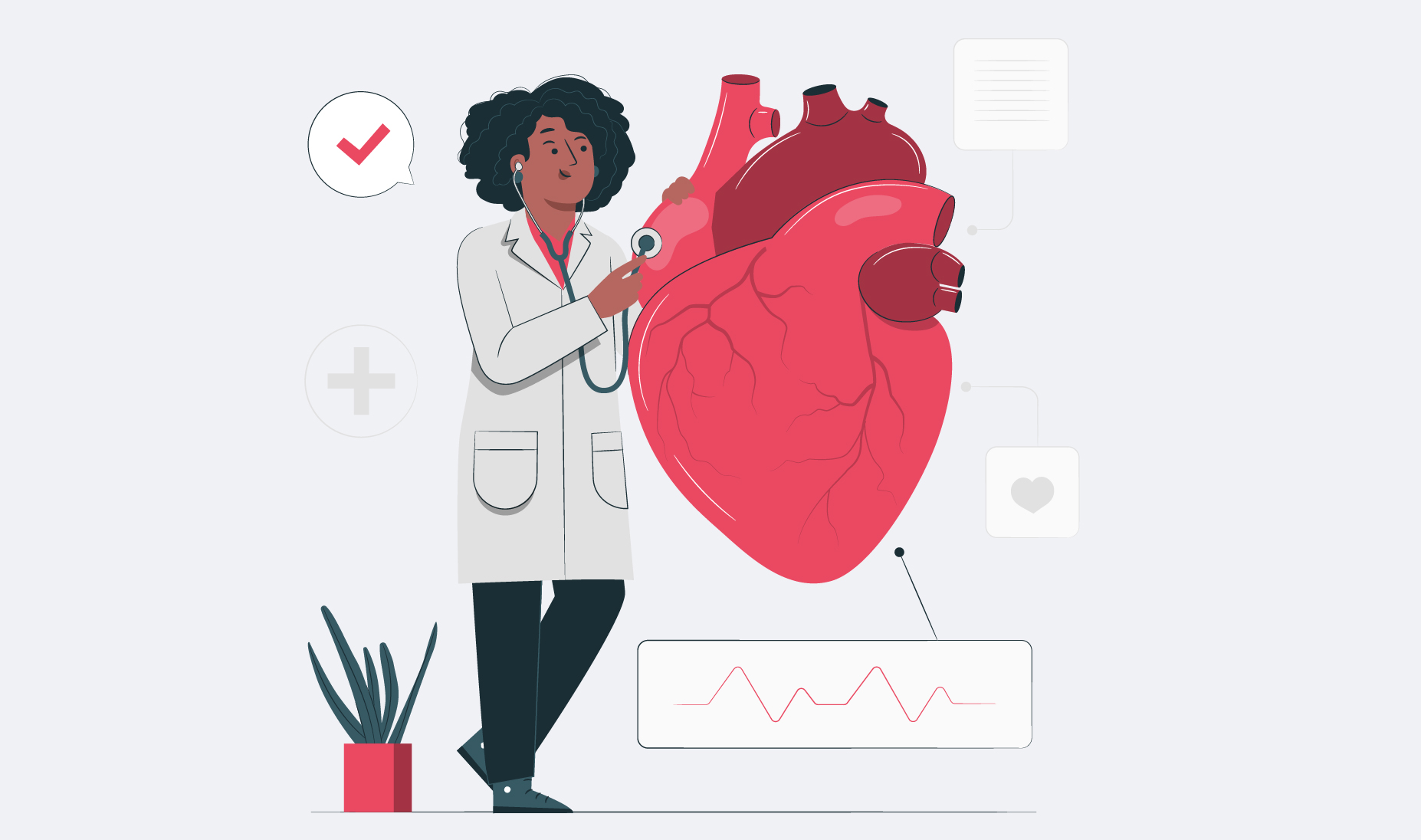Related Articles
 Jan 08, 2025
Jan 08, 2025
Is Varicose Vein surgery covered under the health insurance policy in India
 Health Insurance
Health Insurance

The heart is the most vital organ of the body and it is crucial to keep it in good condition to help our body function well. Every year, on the occasion of World Heart Day, emphasis is given to enhancing awareness of heart health and how we can prevent cardiovascular diseases by following certain heart-healthy measures. Read on to know more.

Comprehensive insurance plans for cardiovascular care are the ones that provide coverage against heart-related diseases. Health insurers offer specialized health insurance policies including critical illness insurance with cardiovascular care for heart patients covering acute heart diseases.
Below are some key features of comprehensive insurance plans for cardiovascular care:
Coverage against Hospitalization – A comprehensive health plan would compensate the expenses incurred for treatment costs for heart diseases including hospitalization charges
Financial Coverage – Your comprehensive plan allows mental peace in terms of expenses incurred on hospitalization costs for cardiovascular issues. The policyholder can raise a claim in such cases to reimburse the finances
Lump Sum Sum insured – Most critical illness policies offer a lump sum amount if a policyholder is diagnosed with a heart ailment to get treatment, pay debts, or for other requirements like recovering the income they lost
Coverage against Loss of Income - Many heart health insurance policies compensate the policyholder for their loss of income and to meet miscellaneous expenses.
Overseas Treatment Coverage – As per the policy chosen, some cardiovascular healthcare policies might cover overseas treatment.
Your cardiac care health insurance policies might offer the following coverage:
In-hospitalization coverage – This coverage helps the policyholder to avail coverage for costs like room rent, ICU charges, and others. This benefit can be availed under cashless claims as well as reimbursement claims if the treatment is done in a non-network hospital.
Pre- and post-hospitalization coverage – Like other health insurance plans, cardiac care insurance plans cover pre- and post-hospitalization expenses for the specified number of days as mentioned in the policy document.
Domiciliary hospitalization coverage – Depending on your cardiac health plan, you may get coverage for costs incurred on domiciliary hospitalization, which means if the insured requires a home health care service as suggested by the doctor, it will be covered under the health insurance plan.
Myocardial Infarction Coverage – Most cardiovascular heart insurance plans cover myocardial infarction treatment. So, if the blood supply is inadequate to the heart, your heart muscle may die. In this case, your treatment expenses will be covered under the plan.
Refractory Failure of Heart – If a heart specialist diagnoses this condition and if the report reveals elevated biomarkers,it might be covered under your policy depending on the policy wording.
Annual Preventive Health Check-ups - Health insurance policies for cardiac health provide annual preventive health check-up benefits so that the policyholder can ensure their heart health and can diagnose any irregularity early on to get the best treatment
Alternative Treatments – Some insurance policies for heart care cover the costs incurred on AYUSH treatment, which includes Ayurveda, Yoga, Unani, Siddha, and homeopathy.
Following a good lifestyle and understanding how you can take care of your heart is a great way to prevent heart diseases. It is important to know what you should do to enhance heart health and what you should avoid doing. Let us take a look at some strategies that can be followed to help protect your heart:
Also, make sure to avoid the intake of high-sodium, refine sugar and sweet beverages, refined carbohydrates, alcohol, processed food, saturated fat, palm oil, full-fat dairy, trans fat, etc.
Besides the above, try to get quality sleep of at least 7 hours. Try to maintain a sleep schedule and go to sleep and wake up at the same time every day to stick to the schedule. In addition, you must also avoid stress and anxiety to avoid high-blood pressure and other factors. To manage stress, you can do yoga, meditation, and exercise. Above all, getting regular health check-ups is also very important.
It is important to prioritize heart health because heart disease kills thousands of people in India every year. So, to prevent heart attacks and strokes, it is important to create awareness about heart health.
Take the below steps to protect heart health and diseases:
It is important to be aware of risk factors like high blood pressure, obesity, smoking, or a family history of heart disease that can raise the chances of developing the disease.
Vegetables, fruits, whole grains, fat-free or low-fat dairy, protein-rich food like fish, eggs, lean meat, nuts seeds, soy products, legumes, etc. are some of the heart-healthy foods to consume.
Yes, angioplasty is covered in heart health insurance plans.
Young and healthy? Find out which of these plans rewards you with lower premiums. Click here to check now!

Paybima Team
Paybima is an Indian insurance aggregator on a mission to make insurance simple for people. Paybima is the Digital arm of the already established and trusted Mahindra Insurance Brokers Ltd., a reputed name in the insurance broking industry with 21 years of experience. Paybima promises you the easy-to-access online platform to buy insurance policies, and also extend their unrelented assistance with all your policy related queries and services.

.jpg)
Having a bike is not just about convenience, it’s a huge responsibility. Financial protection of your two-wheeler is important and the best way to ensure that is to have a bike insurance policy that will protect you in case of an accident, theft or a natural calamity. There are so many options when it comes to policies, making it difficult to know what’s best. This guide makes it easier to choose the best bike insurance policy that is suitable for you.


Non-linked, non-participating term plans are the ones that do not participate in the business and profit of the insurance company. These are fixed premium plans where the policyholder pays a fixed amount to ascertain a guaranteed sum as a return to be paid to the nominee in case of his/ her demise. Let’s learn more in this post.


Car depreciation implies the difference between the cost of a car at the time of buying the car and when you sell it. A car insurance claim amount is determined by the car depreciation rate. The car depreciation rate is the reduction in the value of your car over its lifespan caused by wear and tear.


Have you ever caught yourself lost in illusions about your daughter's future events, such as her university convocation and first day at work? Her university convocation. When she embarks upon her initial job after graduation will be the day.

.png)
Accidents can happen anywhere, anytime, by your own fault or another person. What’s important is to be prepared for such mishaps. This is where Own Damage Car Insurance comes in handy.
